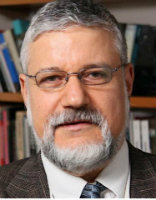
Dr. Barkan is Professor of International and Public Affairs at Columbia University, Director of SIPA's Human Rights Concentration, and Director of Columbia's Institute for the Study of Human Rights. He is also founding Director of the Institute for Historical Justice and Reconciliation (IHJR) in The Hague. Professor Barkan served on ISHR’s board of directors before becoming ISHR’s co-director in 2007 and direc [ ... ]
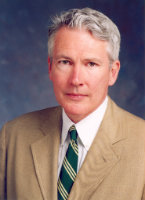
One of the nation's leading constitutional theorists, Professor Bobbitt's interests include not only constitutional law but also international security and the history of strategy. Bobbitt is a Fellow of the American Academy of Arts and Sciences. He is also a Fellow of the Club of Madrid. He is a Life Member of the American Law Institute, and a member of the Council on Foreign Relations, the Pacific Council on Internation [ ... ]
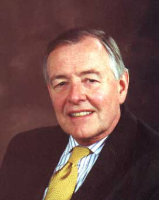
Professor Martin's professional experience has been built around his 29 years as executive director of Columbia's Center for the Study of Human Rights, of which he was a co-founder, along with Law and University Professor Louis Henkin. Prior to being executive director, and later simultaneously, he was director of the Earl Hall Center at Columbia University; lecturer in the School of International and Public Affairs; and [ ... ]
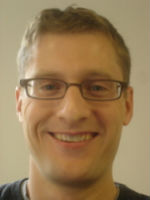
Daniel Corstange (Ph.D., Michigan, 2008) is currently at work on a book project that examines the institutional incentives that privilege coordination on ethnic political coalitions over "policy" coalitions, and the patronage dynamics that result from reliance on ethnic coalitions. Professor Corstange's interests in quantitative methods focus on response bias and eliciting truthful answers to sensitiv [ ... ]
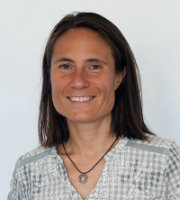
Dr. Sandra Schmidt works as an Assistant Professor of Social Studies at Teachers College. Her research interests include geography education, critical social theory in geography, civic education, social studies education, postcolonial theory, and gender and queer theory. In the past, she has worked on education initiatives in Malawi, South Sudan and Ethiopia, and taught secondary social studies within the Unit [ ... ]
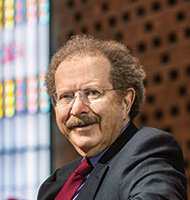
Menachem Z. Rosensaft, is General Counsel of the World Jewish Congress. He is also Adjunct Professor of Law at Cornell Law School, and Distinguished Visiting Lecturer at Syracuse University College of Law. Born on May 1, 1948 in the Displaced Persons camp of Bergen-Belsen, the son of two survivors of Auschwitz and Bergen-Belsen, he has long been a leader in Holocaust remembrance activities. On September 22, 2010, Preside [ ... ]
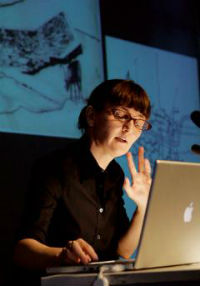
Felicity D. Scott is assistant professor of architecture and director of the program in Critical, Curatorial and Conceptual Practices in Architecture (CCCP) at the Graduate School of Architecture, Planning and Preservation, Columbia University. She is also a founding co-editor of Grey Room, a quarterly journal of architecture, art, media, and politics published quarterly by MIT Press since Fall 2000. Her work as an archit [ ... ]
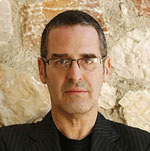
Mark Mazower is a historian and writer, specialising in modern Greece, 20th century Europe and international history. He read classics and philosophy at Oxford, studied international affairs at Johns Hopkins University's Bologna Center, and has a doctorate in modern history from Oxford (1988). His books include Inside Hitler's Greece: The Experience of Occupation, 1941-44 (Yale UP, 1993); Dark Continent: Europe [ ... ]
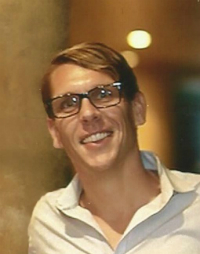
Josh Fisher received his PhD in Conflict Analysis and Resolution from George Mason University, where he studied the ecological drivers of armed conflict. His work coupled geospatial statistics, remote sensing, and econometric modeling to develop spatially explicit forecast models of the likelihood of armed conflict. He received his MS from Utah State University in Political Science and his BS in International Law and Envi [ ... ]
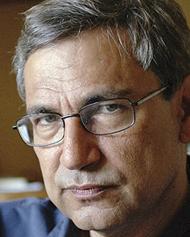
Orhan Pamuk is one of Turkey's most prominent novelists. Titles (in English) include "The White Castle," "The Black Book," "The New Life," "My Name is Red," "Snow," "Isbanbul: Memories of a City," "Other Colors: Essays and a Story" and his newest book, "The Museum of Innocence." His work has been trnaslated into more than 40 languages and he h [ ... ]
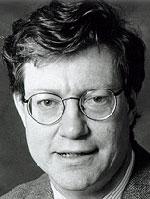
Richard M. Pious, professor of political science and Adolph S. and Effie Ochs Chair in History and American Studies, taught at Columbia College from 1968 through 1972, and joined the Barnard faculty in 1973. He also taught at York University, Toronto. Professor Pious's teaching includes courses on American politics, constitutional and public law, and political decision making. Professor Pious has written widely on A [ ... ]
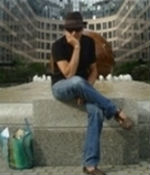
I began fieldwork in 1969. I have returned every year. My writing has spanned different things in roughly the following order; two books in Spanish for local people on the history of slavery and its aftermath, and books and articles in academic journals on the: 1) commercialization of peasant agriculture, 2) slavery, 3) hunger, 4) the popular manifestations of the working of commodity fetishism, 5) the impact of col [ ... ]
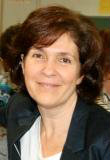
Karen Barkey is Professor of Sociology and History. She studies state centralization / decentralization, state control and social movements against states in the context of empires. In her recent work she has also explored the issue of toleration and accommodation in pre-modern empires. Her research focuses primarily on the Ottoman Empire, and recently on comparisons between Ottoman, Habsburg and Roman empires. Her firs [ ... ]
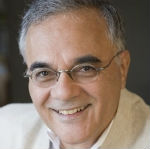
Mahmood Mamdani is the Herbert Lehman Professor of Government. He received his Ph.D. from Harvard University in 1974 and specializes in the study of African history and politics. His works explore the intersection between politics and culture, a comparative study of colonialism since 1452, the history of civil war and genocide in Africa, the Cold War and the War on Terror, and the history and theory of human rights. Prior [ ... ]
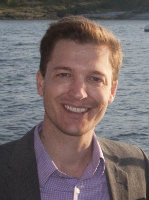
Tom Hill is an adjunct faculty member of SIPA and is a lecturer in the International Conflict Resolution specialization. His primary research interests are in the history of the international mediation of civil wars and the strategic theory of peacemaking. He is the director of a track II mediation program, in partnership with the Peace and Reconciliation Section of the Royal Norwegian Foreign Ministry and the Conflict, [ ... ]
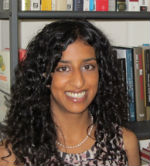
I study modern state formation in conflict and post-conflict settings. In particular, I have spent the last several years studying the role of warlords in the state building project in post-2001 Afghanistan. I am fascinated by the challenges weak political centers face as they attempt to grow their authority in the face of formidable competitors. Unlikely alliances sometimes form that turn strongmen into governors operati [ ... ]
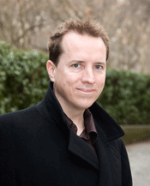
Matthew Connelly, professor, works on the history of eugenics, migration, and birth control. His most recent book, Fatal Misconception: The Struggle to Control World Population, has just been published by Harvard University Press. His research articles have appeared in such journals as Population and Development Review, Comparative Studies in Society and History, The International Journal of Middle East Studies, The Ameri [ ... ]
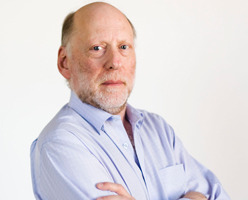
Todd Gitlin is professor of journalism and sociology and chair of the Ph. D. program in Communications at Columbia University. He holds degrees in three different subjects: mathematics (B.A., Harvard), political science (M.A., Michigan), and sociology (Ph.D., Berkeley). Along the way, he became a political activist in the New Left of the 1960s, contributed to the so-called underground press, and began to write books. Gi [ ... ]
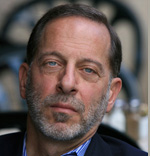
Rashid Khalidi is the Edward Said Professor of Arab Studies at Columbia University. He received his B.A. from Yale University in 1970, and his D.Phil. from Oxford in 1974. He is editor of the Journal of Palestine Studies, and was President of the Middle East Studies Association, and an advisor to the Palestinian delegation to the Madrid and Washington Arab-Israeli peace negotiations from October 1991 until June 1993. Kh [ ... ]
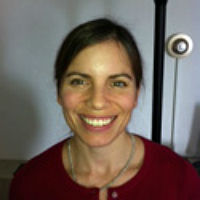
Ariella Lang joined the Institute for the Study of Human Rights in May 2011. As director of the AHDA program, she oversees research and curricular development of activities relating to historical dialogue at the Institute. Historical dialogue is an emerging field of study that seeks to explore and address conflicting narratives about the past as part of the work of reconciliation and democracy promotion. To this end, Dr. [ ... ]